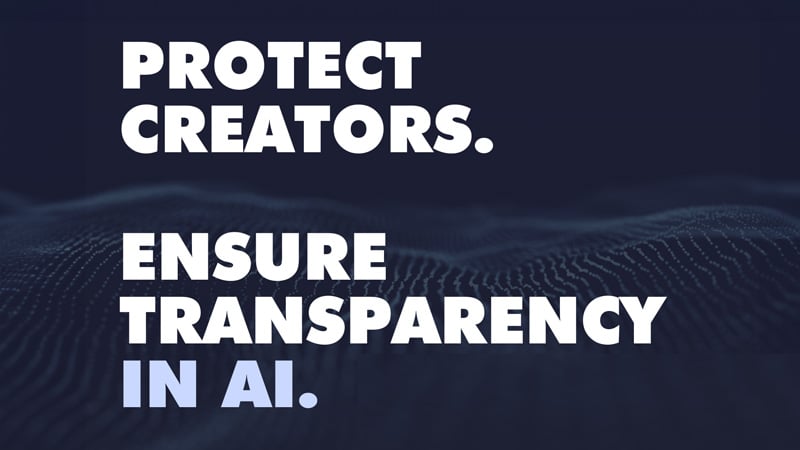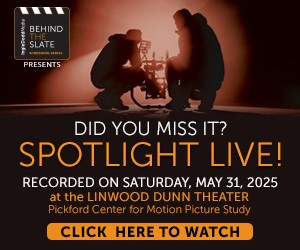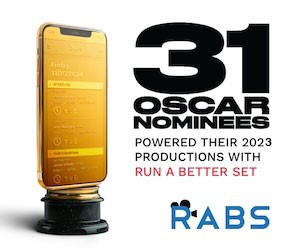Los Angeles – The Directors Guild of America (DGA) proudly endorses the Generative AI Copyright Disclosure Act introduced by Representative Adam Schiff on April 9, 2024. This proposed legislation aims to promote responsible innovation in artificial intelligence (AI) by safeguarding the intellectual property (IP) rights of creators whose works are used to train AI systems. The DGA believes protecting the contributions of its members and all artists is crucial as generative AI capabilities rapidly advance.
“The Directors Guild of America commends this commonsense legislation, which is an important first step toward enabling filmmakers to protect their intellectual property from the potential harms caused by generative AI. We thank Representative Schiff for championing these rights that will protect filmmakers and the entire creative community.” – DGA President Lesli Linka Glatter.
See full press release from Representative Schiff's office below:

April 09, 2024
REP. SCHIFF INTRODUCES GROUNDBREAKING BILL TO CREATE AI TRANSPARENCY BETWEEN CREATORS AND COMPANIES
Washington, D.C.— Today, Representative Adam Schiff (D-Calif.) introduced groundbreaking legislation to require transparency from companies regarding their use of copyrighted work to train their generative AI models. The Generative AI Copyright Disclosure Act would require a notice to be submitted to the Register of Copyrights prior to the release of a new generative AI system with regard to all copyrighted works used in building or altering the training dataset for that system. The bill’s requirements would also apply retroactively to previously released generative AI systems.
“AI has the disruptive potential of changing our economy, our political system, and our day-to-day lives. We must balance the immense potential of AI with the crucial need for ethical guidelines and protections. My Generative AI Copyright Disclosure Act is a pivotal step in this direction. It champions innovation while safeguarding the rights and contributions of creators, ensuring they are aware when their work contributes to AI training datasets. This is about respecting creativity in the age of AI and marrying technological progress with fairness,” said Rep. Schiff.
Schiff’s bill has generated significant support from the creative community. See below:
“Any effective regulatory regime for AI must start with one of the most fundamental building blocks of effective enforcement of creators’ rights - comprehensive and transparent recordkeeping. RIAA applauds Congressman Schiff for leading on this urgent and foundational issue,” said Ken Doroshow, Chief Legal Officer, Recording Industry Association of America.
“The Directors Guild of America commends this commonsense legislation, which is an important first step toward enabling filmmakers to protect their intellectual property from the potential harms caused by generative AI. We thank Representative Schiff for championing these rights that will protect filmmakers and the entire creative community,” said Lesli Linka Glatter, President, DGA.
“Professional Photographers of America and its 35,000 members strongly support this bill. Photographers are particularly susceptible to having their works scraped by generative AI companies, as they must publicly exhibit their best work to attract clients. The urgency of this issue should not be understated as copyright holders suffer from the harsh reality of competing with their own works taken by generative AI companies to develop their systems,” said David Trust, CEO, Professional Photographers of America.
“Everything generated by AI ultimately originates from a human creative source. That’s why human creative content—intellectual property—must be protected. SAG-AFTRA fully supports the Generative AI Copyright Disclosure Act, as this legislation is an important step in ensuring technology serves people and not the other way around," said Duncan Crabtree-Ireland, National Executive Director and Chief Negotiator, SAG-AFTRA.
“This bill is an important first step in addressing the unprecedented and unauthorized use of copyrighted materials to train generative AI systems. Greater transparency and guardrails around AI are necessary to protect writers and other creators,” said Meredith Stiehm, President, Writers Guild of America West.
“The Generative AI Copyright Disclosure Act is an important piece of legislation that will ensure companies use this new and rapidly advancing technology in ethical and transparent ways. Given the scope and potential threat of AI, enforceable regulations are urgently needed to keep companies from implementing this technology in the shadows, without people’s consent or knowledge.” said Lisa Takeuchi Cullen, President, Writers Guild of America East.
“Without transparency around the use of copyrighted works in training artificial intelligence, creators will never be fairly compensated and AI tech companies will continue stealing from songwriters. This bill is an important step toward ensuring that the law puts humans first, and we thank Congressman Schiff for his leadership,” said Elizabeth Matthews, CEO, ASCAP.
“The International Alliance of Theatrical Stage Employees commends Rep. Adam Schiff for introducing the Generative AI Copyright Disclosure Act. Entertainment workers must be fairly compensated when their work is used to train, develop or generate new works by AI systems. This legislation will ensure there is appropriate transparency of generative AI training sets, thereby enabling IATSE workers to enforce their rights,” said Matthew D. Loeb, International President, IATSE.
“Protecting the work of music creators is essential, and this all begins with transparency and tracking the use of copyrighted materials in generative AI. BMAC hopes Rep. Schiff’s Generative AI Copyright Disclosure Act helps garner support for this mission and that author and creator rights continue to be protected and preserved,” said Willie “Prophet” Stiggers, Co-Chair, Black Music Action Coalition.
“Congressman Schiff’s proposal is a big step forward towards responsible AI that partners with artists and creators instead of exploiting them. AI companies should stop hiding the ball when they copy creative works into AI systems and embrace clear rules of the road for recordkeeping that create a level and transparent playing field for the development and licensing of genuinely innovative applications and tools,” said Dr. Moiya McTier, Senior Advisor, Human Artistry Campaign.
The Generative AI Copyright Disclosure Act is supported by the Recording Industry Association of America, Copyright Clearance Center, Directors Guild of America, Authors Guild, National Association of Voice Actors, Concept Art Association, Professional Photographers of America, Screen Actors Guild-American Federation of Television and Radio Artists, Writers Guild of America West, Writers Guild of America East, American Society of Composers, Authors and Publishers, American Society for Collective Rights Licensing, International Alliance of Theatrical Stage Employees, Society of Composers and Lyricists, National Music Publishers Association, Recording Academy, Nashville Songwriters Association International, Songwriters of North America, Black Music Action Coalition, Music Artist Coalition, Human Artistry Campaign, and the American Association of Independent Music.
To read the full bill text, click HERE.




